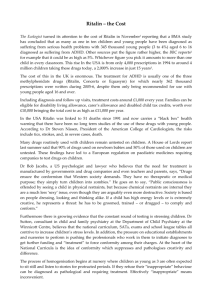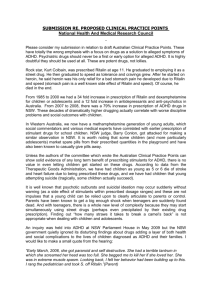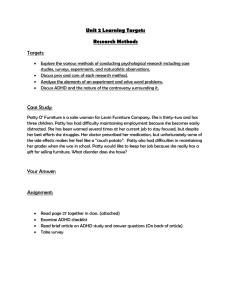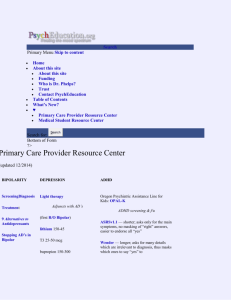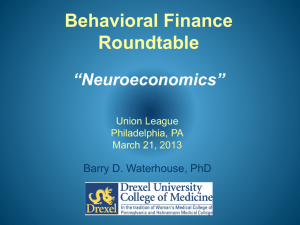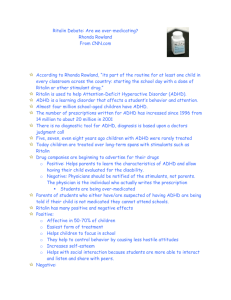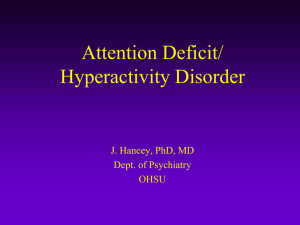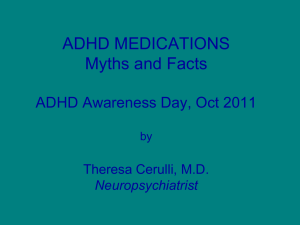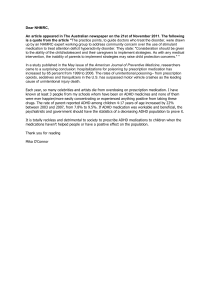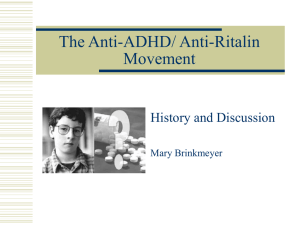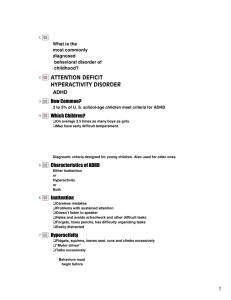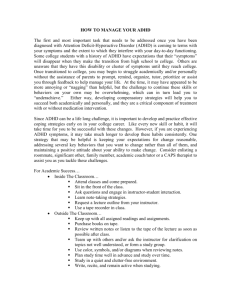Methylphenidate (Ritalin)
advertisement
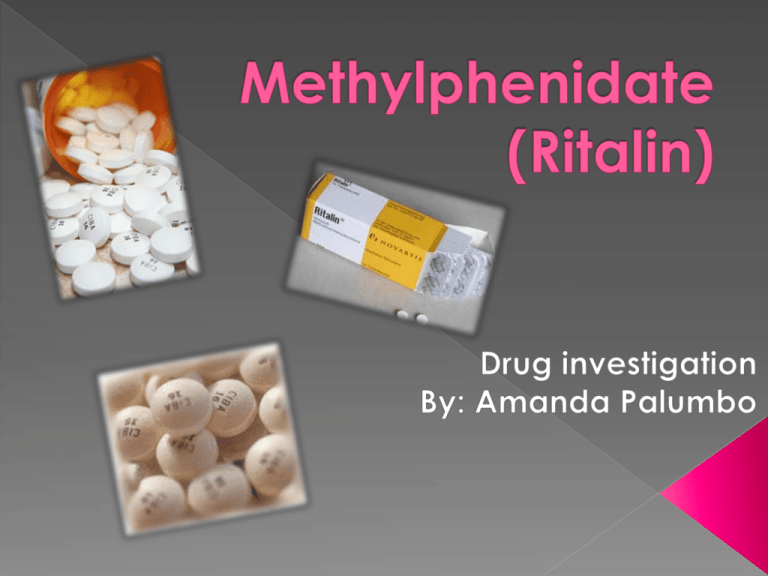
Chemical name: Methylphenidate Brand name: Ritalin › Other brand names: Concerta, Methylin ER, Methadate ER and CD Street names: › Vitamin R, Rids, Smarties, kibbles and bits, and R-ball Stimulant › CNS › Changes natural substances in the brain Release and increase dopamine Causes increased concentration, alertness and focus. Also helps with sleepiness Produces mental and behavioral effects in children and some adults It is a schedule II controlled substance High potential for abuse › This substance has potential for abuse › may lead to severe psychological and physical dependence. Ritalin or methylphenidate is known to help control symptoms of children and some adults with ADD and ADHD › Difficulty focusing › Controlling actions and remaining still or quiet than other people of the same age First synthesized in 1944 and known as MPH Trademark Named Ritalin in 1948 › Owned originally by CIBA › now Novartis Corporation 195o it was improved and 1954 it started being tested on humans First licensed by FDA in 1955 1957 Ciba Pharmaceutical Company began marketing MPH to treat chronic fatigue, depression, and narcolepsy 1960 : › try counteract symptoms of barbiturate over dose Barbiturate- CNS depressant that causes relaxation and sleepiness › Focus became on the treatment of hyperkinetic syndrome which later became called ADHD Ritalin use to treat ADHD increased in the 1970s and early 1980s 1991-1999 Ritalin sale increased 500 percent in the US To treat ADD and ADHD (Attention deficit Hyperactivity disorder) › Help those who suffer from ADD and ADHD focus To treat Narcolepsy and some times depression. › Narcolepsy- daytime sleepiness and sudden sleep attacks Usually given a gradual dosage throughout the day and needs to be strictly followed › Important to be accompanied with a snack or a meal Appetite Suppression Increased heart rate and blood pressure Feelings of being energized › Wakefulness › heightened alertness Could be more outgoing than usual (talkative and social) Could have opposite effect on people with ADHD › Calming effect › Some may experience drowsiness Behavioral Changes Dependency (addiction) Insomnia Nervousness Loss of appetite › Could lead to anorexia Growth suppression Could also cause irregular heart beat and breathing › Heart palpations Skin rash, fever, nausea, dizziness, headache, and abdominal pain Generalized Anxiety Restlessness Tremor Aggression Hallucinations Panic states Twitches or spasms (hyperreflexia) Rapid heart beat High blood pressure Symptoms of Depression Delusions Dehydration sweating Vomiting Could cause sudden heart attack in severe cases http://www.casapalmera.com/articles/sign s-and-effects-of-the-methylphenidate-adrug-also-known-as-ritalin/ http://www.ncbi.nlm.nih.gov/pubmedhealt h/PMH0000606/ http://www.pharma.us.novartis.com/produ ct/pi/pdf/ritalin_ritalin-sr.pdf http://www.fda.gov/Drugs/DrugSafety/ucm 085729.htm http://www.cesar.umd.edu/cesar/drugs/rit alin.asp http://www.deadiversion.usdoj.gov/schedul es/index.html
